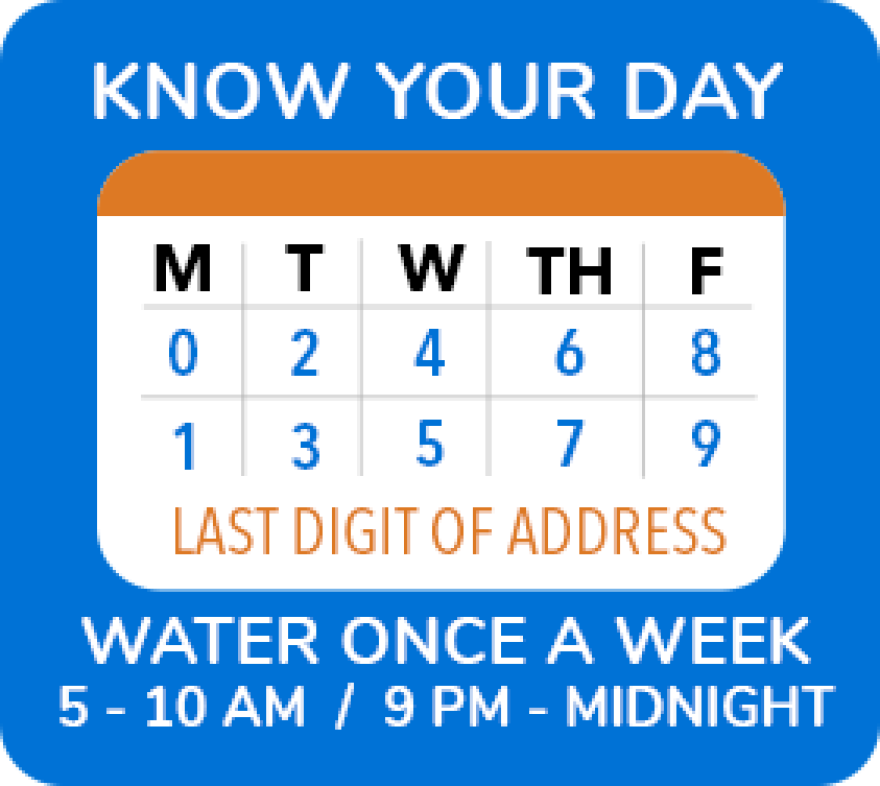The San Antonio Water System has declared Stage 3 water restrictions as a drought continues.
High water users will also pay more under a SAWS bill surcharge approved by the San Antonio City Council last week.
Landscape watering under Stage 3 is still allowed once a week with an irrigation system, sprinkler, or soaker hose, but the hours have shifted to 5 a.m. to 10 a.m. and 9 p.m. to midnight. Watering days are determined by the last digit in a street address. Areas without a street address, such as medians and neighborhood entryways, can be watered on Wednesdays using the same methods.

For single family bill accounts, the Stage 3 surcharge of $10.37 per thousand gallons will take effect for water use above 20,000 gallons per month.
Commercial irrigation surcharge amounts will vary based on water use and meter size.
Drip irrigation is allowed every Monday and Friday, but only from 5 a.m. to 10 a.m. and 9 p.m. to midnight.
Watering with a hand-held hose is permitted at any time and on any day.
All residential fountains and commercial fountains can operate at any stage of drought. Outdoor commercial fountains must have a SAWS variance in order to operate during drought stages 1 through 4.
All private swimming pools must have a minimum of 25% of the surface area covered when not in use. Pool toys and floating decorations can count as cover.
Washing parking lots, driveways, streets or sidewalks is prohibited. Health and safety exceptions may be requested from SAWS.
Residential car washing is allowed during drought once per week on Saturday or Sunday as long as there is no water waste.
The use of SAWS-certified commercial car wash facilities is allowed any day.
Operators of golf courses, athletic fields, and parks must reduce watering per city ordinance. For those requirements, operators can contact SAWS at 210-704-SAVE.
Hotels and motels must limit linen and towel changes to once every three nights, except where there are health and safety concerns.
Water waste is banned at all times. Water restriction enforcers will be on the lookout for excessive overspray and runoff from lawns and gardens onto pavements.
Restaurants may serve water only on request. Such a rule also means less dishwashing machine use.
Charity car washes must be held at commercial car wash facilities.
San Antonio saw its hottest two summers ever back-to-back. Both 2022 and 2023 saw dozens of triple digit days, according to the National Weather Service.
The region is still trying to recover from the drought made worse the past couple of years, according to weather forecasters.
The weather service's long-term summer forecast for 2024 called for above normal temperatures and about average rainfall amounts. Drought experts said the area really needs rainfall amounts well above average to end the drought.





